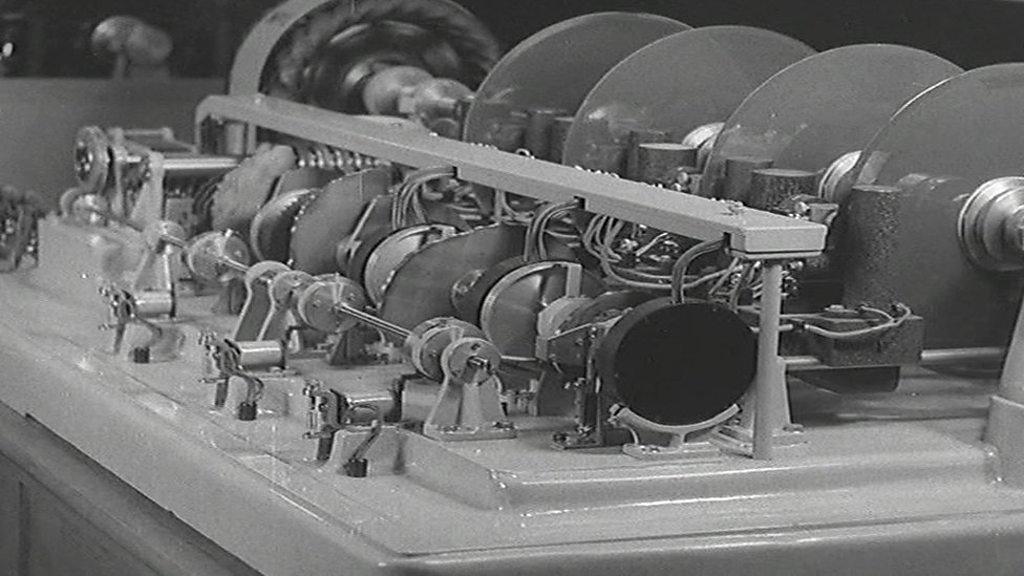1960s high street recreated at Black Country Living Museum
- Published
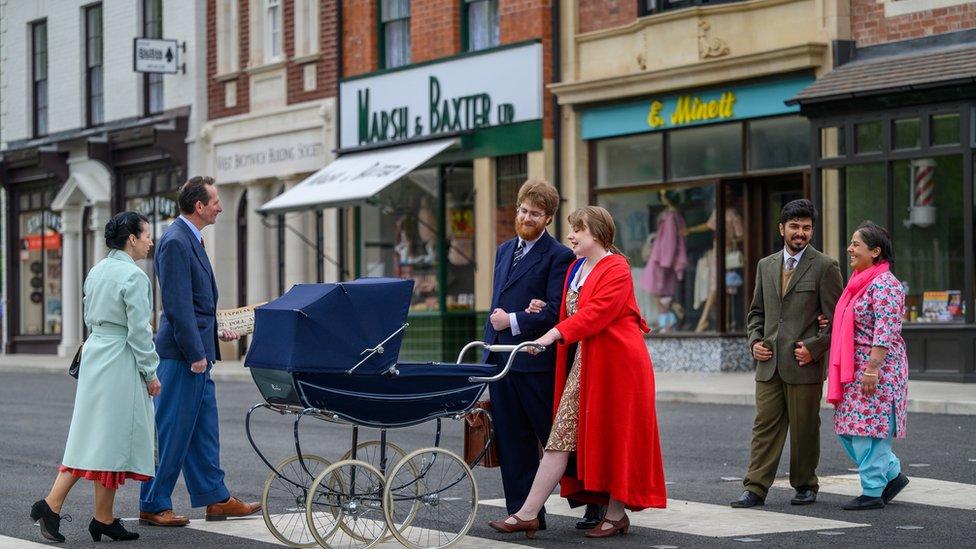
The recreated high street features favourites from Dudley and the wider West Midlands
A museum has recreated a 1960s high street, complete with recognisable shops which have since closed down.
The Black Country Living Museum has been influenced by places in Dudley, where it is based, and nearby areas.
Visitors can pop into Burgin's newsagents, butchers Marsh and Baxter and Stanton's Music Shop, among others.
The exhibition was inspired by real life stories and will feature actors playing real characters, including shop keeper Cynthia Burgin.
She ran her family's newsagents on Wolverhampton Street for 56 years.
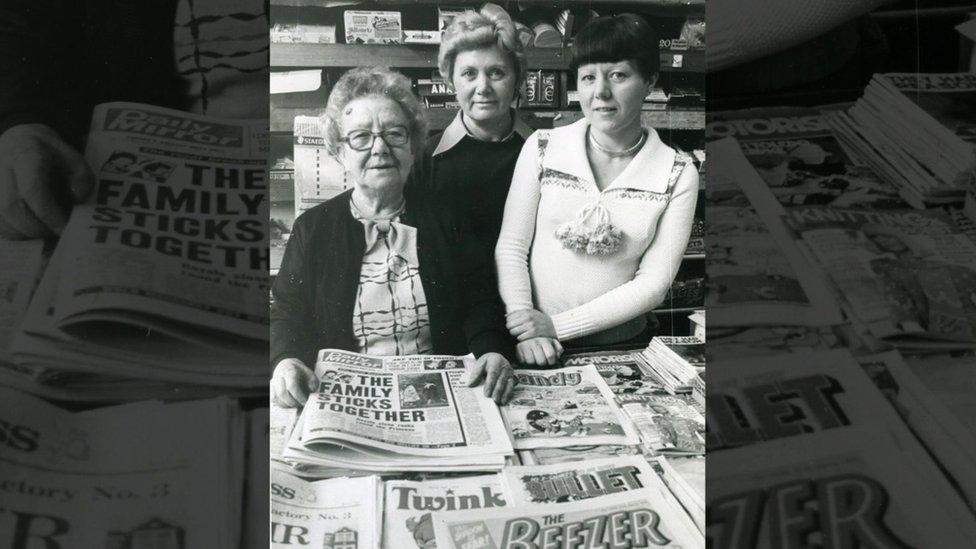
Cynthia Burgin, pictured middle, ran her family's shop for more than 50 years
"I came here in 1959 aged 29 and retired aged 85," she said.
"Wolverhampton Street was an extremely busy area where the trolley bus used to come along from Wolverhampton into Dudley.
"There were lots of shops. I'm sorry I'm the last one but I knew these small shops now, we couldn't carry on. And now Burgin's is nothing."
Chloe Taylor, the museum's collections manager, said Burgin's was the "heart of the community - it was a place for all the gossip".
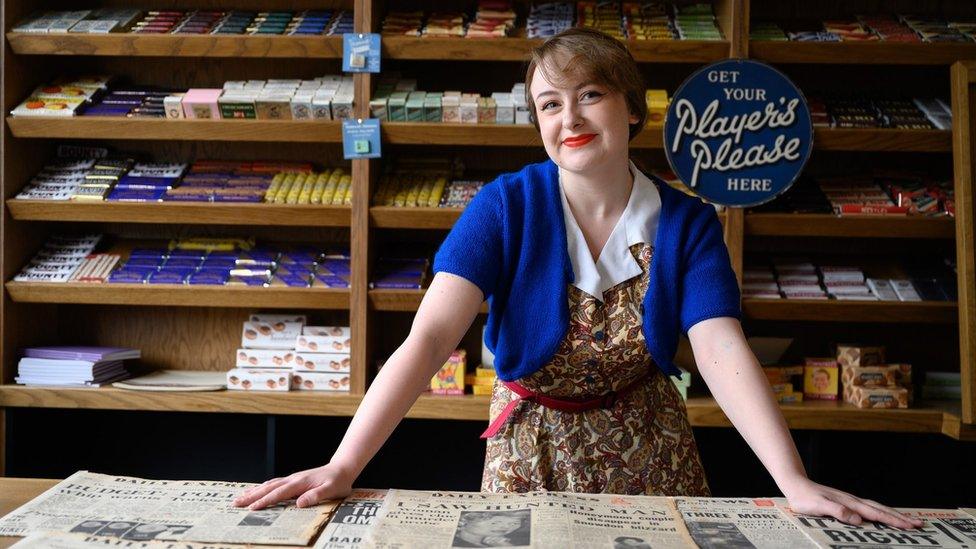
An actor will play Ms Burgin in the museum's recreation of her newsagents
It closed seven years ago and other shops which now feature in the museum share a similar story.
Stanton's Music Shop is now a betting shop, Brierley Hill's Marsh and Baxter is a nail bar while the next door bank stands empty.
"There's a melancholy there that the high street as it was doesn't exist in the way it did," said Ms Taylor.
"But I think that's the beauty of recreating something like this - you've got that nostalgia, it's within living memory, people still remember these buildings very fondly."
As well as shops, the exhibit, which opens on 8 July, will also include vintage transport and visitors can dial-a-disc or call the talking clock from a 1960s telephone box.

Follow BBC West Midlands on Facebook, external, Twitter, external and Instagram, external. Send your story ideas to: newsonline.westmidlands@bbc.co.uk, external
Related topics
- Published20 January 2023
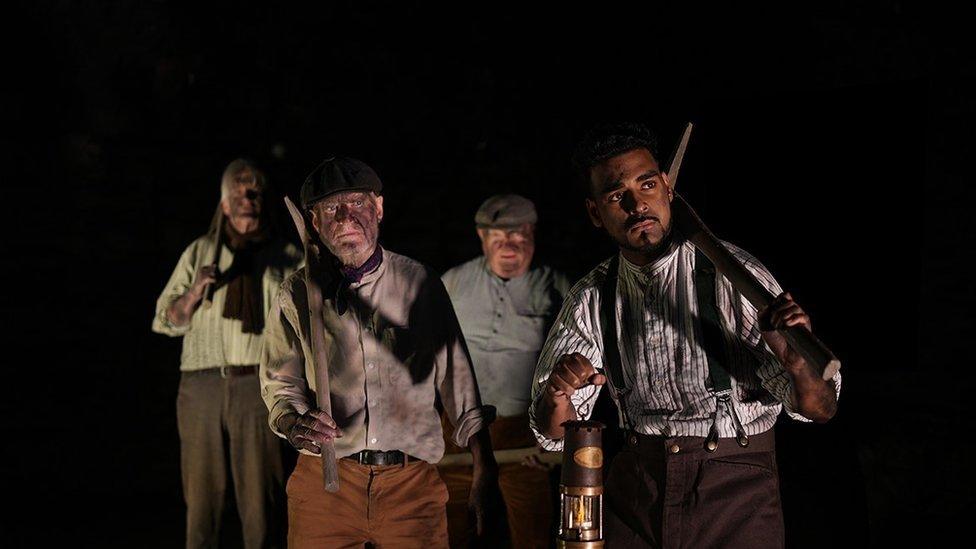
- Published3 December 2022
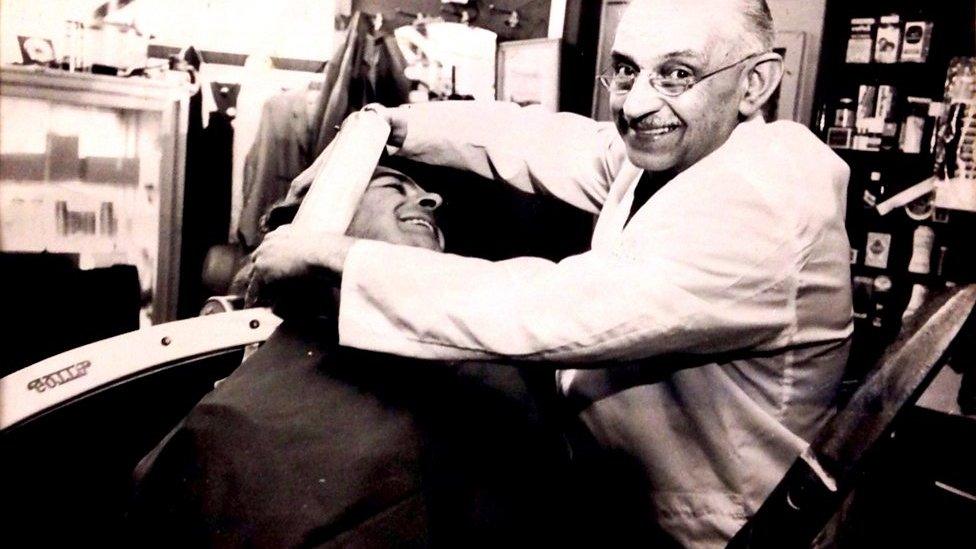
- Published24 March 2022
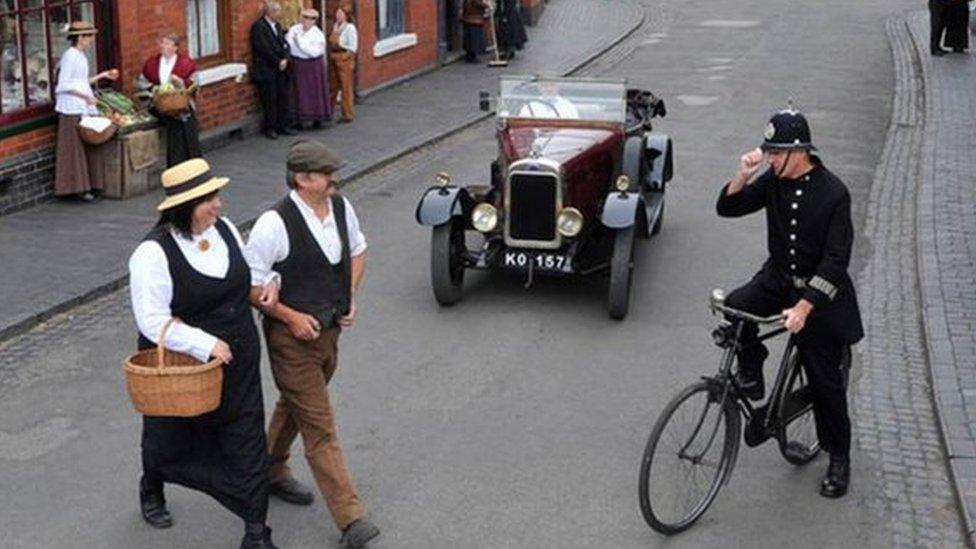
- Published2 October 2022
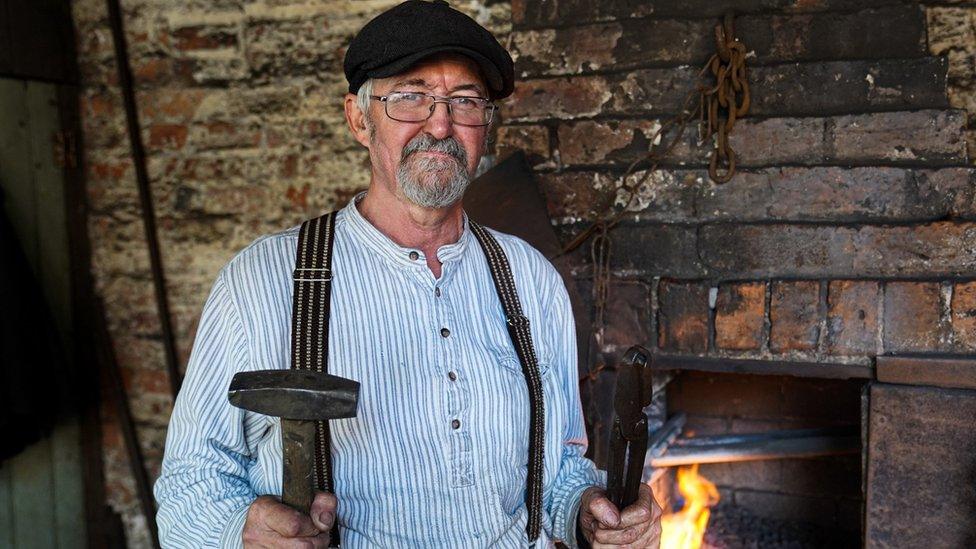
- Published16 August 2022
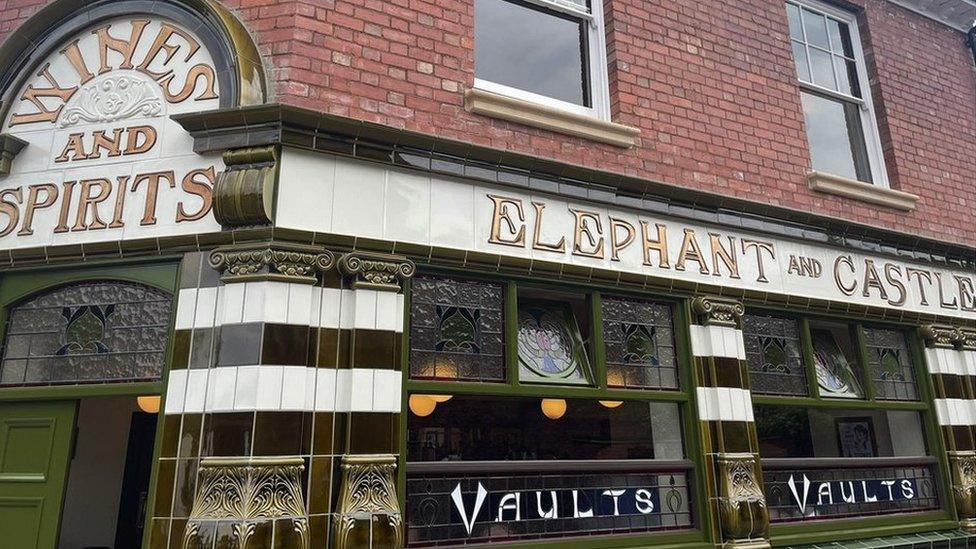
- Published14 December 2020
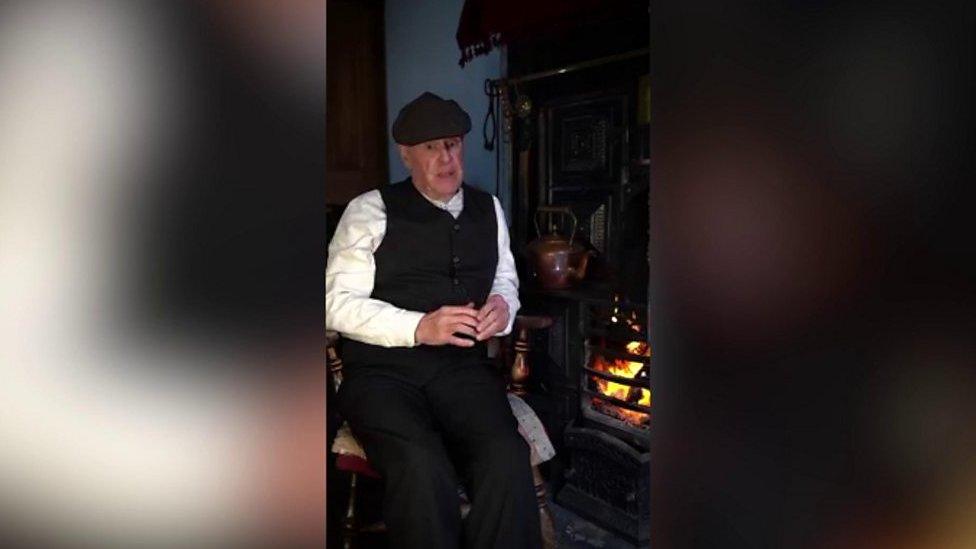
- Published24 July 2016
